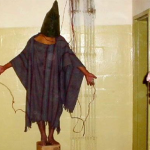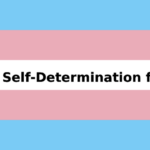Corruption in Australia on the Rise

Australia’s leading anti-corruption organisation has outlined a range of measures it says are needed for our nation to reclaim its place as a world-leader in fighting corruption.
Transparency International Australia (TIA) is concerned by Australia’s drop from sixth to 12th position on TIA’s worldwide corruption index since 2012, with the organisation blaming the government’s complacency and inaction in a number of key areas.
The drop is only the third time Australia has been outside the top 10 – the other times being in 2015 and 1998. Countries in the index are given a score from one (“very corrupt”) to 100 (“very clean”). Australia scored 79 points in 2015, down from 80 points in 2014, and 81 in 2013.
Current corruption issues
Anthony Whealy QC, the new chairman of TIA and a former Supreme Court judge, says new laws are urgently required to crack down on foreign bribery in business, pointing out that the Australian Federal Police have struggled to lay charges in several long-running and high-profile foreign bribery probes.
Mr Whealy says new laws should be passed to make it a criminal offence to pay bribes to foreign governments for the purpose of securing business contracts, as well as laws requiring companies to keep records of all payments made to foreign companies and governments.
Australia’s reputation has also been affected by the Reserve Bank of Australia’s (RBA) recent corruption scandal. In 2013, two firms owned by the RBA, ‘Securency’ and ‘Note Printing Australia’, were accused of bribing foreign officials to win banknote contracts from the Saddam Hussein-led Iraqi government.
Hundreds of Australians and several Australian companies, including Leighton Holdings and Worley Parsons, have also been implicated in the recent ‘Panama Papers’, accused of illegally avoiding tax by using international tax havens.
TIA CEO Phil Newman called on the Turnbull Government to create a stronger federal anti-corruption agency:
“With Australia’s worst foreign bribery offences having been committed by former or current government-owned entities – the Australian Wheat Board, Note Printing Australia and Securency Limited – there is no excuse not to have implemented all of the OECD’s reform recommendations in this area by the end of the year,” Mr Newman said.
Meanwhile, recent ICAC investigations suggest that NSW Liberal Party figures have been illegally circumventing a ban on donations from property developers by falsely claiming the payments were made to a charity called the ‘Free Enterprise Foundation.’ At the same time, Labor Party figures are suspected of links to union corruption.
Investigations by the Australian Electoral Commission since 2013 suggest a systemic failure in many political parties to disclose donations and manage their accounts and annual returns as required by law.
Proposed corruption bodies
The TIA has called for the establishment of:
- A national anti-corruption body and parliamentary integrity commissioner to address public sector corruption, with the existing state-based bodies such as NSW ICAC being labelled as ‘manifestly inadequate’, and
- A new crime-fighting division in the Serious Fraud and Corruption Office to take over the AFP’s role in investigating corporate fraud and corruption. The division would take on the proposed anti-corruption measures of the Building and Construction Commission.
The TIA believes it is important for the Federal Government to follow in the footsteps of New Zealand and the UK Serious Fraud Offices in giving independence and permanence to these law enforcement agencies. This would require an upgrade of resources for fighting bribery, which would help the agencies effectively investigate fraud involving senior Commonwealth officials.
Government response
The Federal Government is accused of sweeping corruption scandals under the rug.
The Prime Minister has repeatedly rejected the idea of establishing a national corruption body, while the Attorney General has said that Australian federal politics is “remarkably free of corruption”, arguing against the need for a new watchdog.
This is perhaps unsurprising given that the Commonwealth Attorney General himself, Senator George Brandis, is currently accused of illegally bugging the East Timorese cabinet, as well as providing an ‘unlawful inducement’ by offering a job to get rid of Human Rights Commission President Gillian Triggs in 2015, just weeks before the release of a highly critical report on the state of children in detention.
Despite the government’s hesitance, an inquiry into the establishment of a federal corruption body has been pushed through the Senate, which will look at reforming existing legislative framework.
The inquiry is scheduled to report on September 22, and will hopefully implement some of the anti-corruption measures recommended by the TIA.
Receive all of our articles weekly
Author






